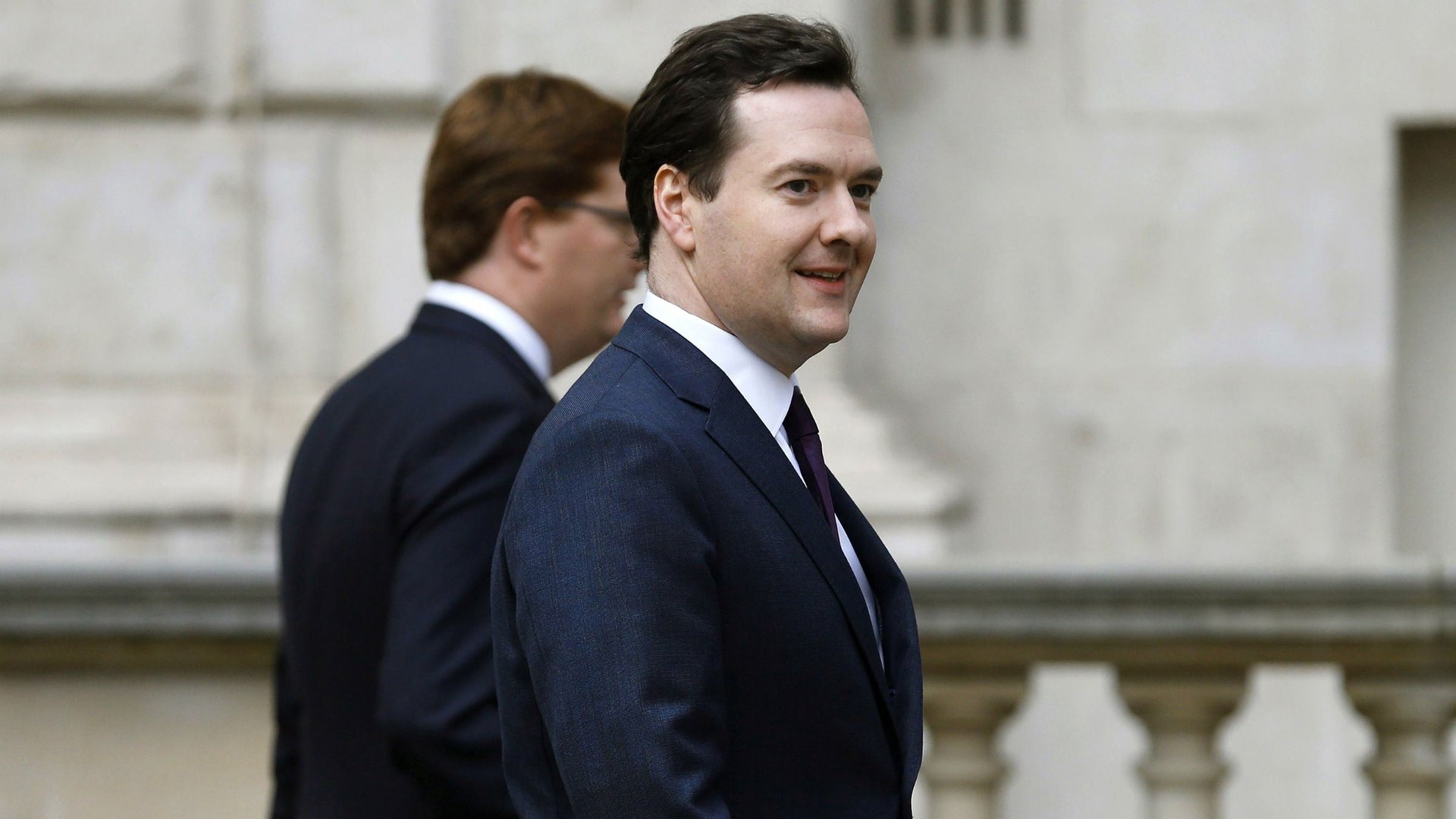S&P joins the pile-on, threatening Britain’s cherished AAA rating
Tory austerity is not performing as advertised.


Tory austerity is not performing as advertised.
When British prime minister David Cameron came to power, the emphasis on reducing government spending was supposed to give business leaders confidence, as they watched deficits decline along with—presumably—expectations for their future tax bills.
Plenty argued that it wasn’t going to work that way. Like it or hate it, in the UK the government plays a big role in the economy. The government’s spending is someone else’s income. So in terms of deficit reduction, cutting government spending would hamper the economy, and that would cause spending on things like unemployment benefits to rise, canceling out any possible deficit reduction.
This seems to be what’s happened. Earlier this month George Osborne, the head of Britain’s finance ministry, had to confess to colleagues in parliament that the UK wouldn’t comply with his goal of cutting the UK’s debt level as a share of economic output by 2015-16. And the outlook for the UK economy doesn’t look too promising either, according to analysts from credit rating firm Standard & Poor’s. The firm joined rivals Fitch and Moody’s today in putting its rating on the sovereign debt of the UK on “negative” watch. S&P says that means there’s a 33% chance it could lower its ratings on the UK if the country’s economy weakens more than expected.
The bright side, if you can call it that, is that S&P already takes such a dim view of the UK’s economy that something pretty disastrous would have to happen to trigger a downgrade:
In our opinion, many of the factors that have restrained growth in recent years will likely continue to do so in the near term. We continue to believe the government’s efforts over the next few years to engineer the planned correction in the U.K.’s fiscal accounts will likely drag on economic growth, although we note that the expected pace of consolidation is to ease in the short term.
We also believe that household spending will be restrained by sluggish nominal wage growth, a becalmed housing market, and a high, albeit falling, private-sector debt burden. With weak private-sector domestic demand, corporate investment is likely to recover only as the external environment improves (the eurozone accounts for nearly half of the U.K.’s overall trade).